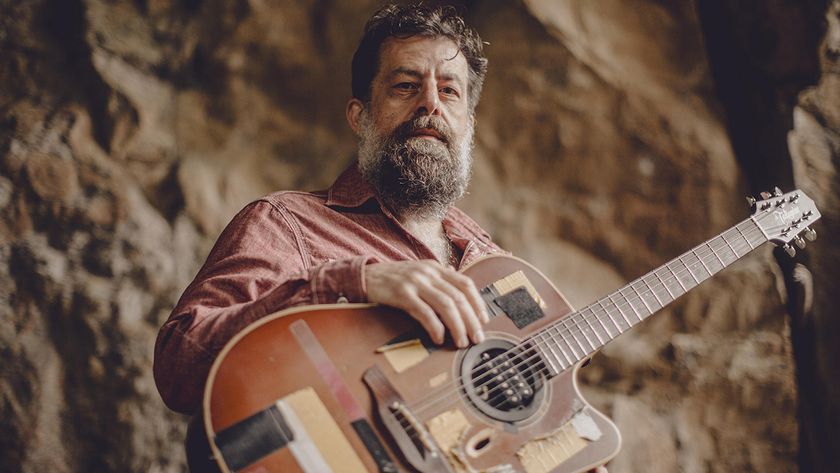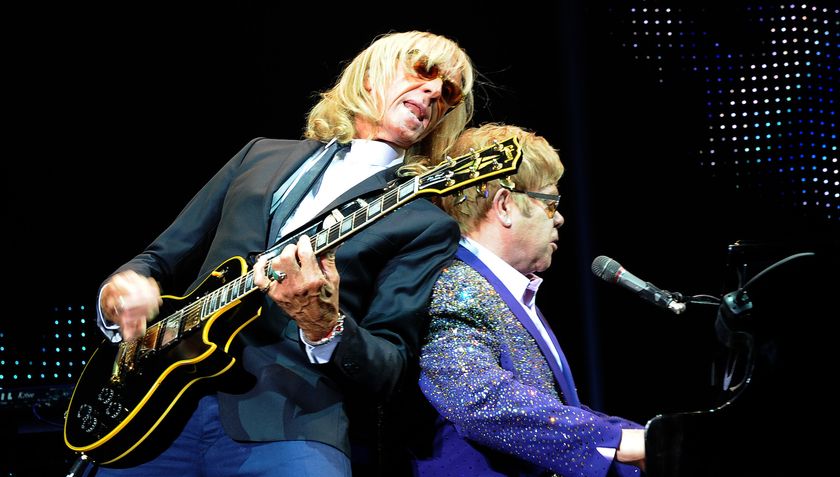Moaning Lisa’s Ellen Chan: “In a band, you’re always working towards the same goal, and you’re all trying to service the song”
With their hotly anticipated debut album, Moaning Lisa make a striking case for themselves as the new queens (and king) of grunge
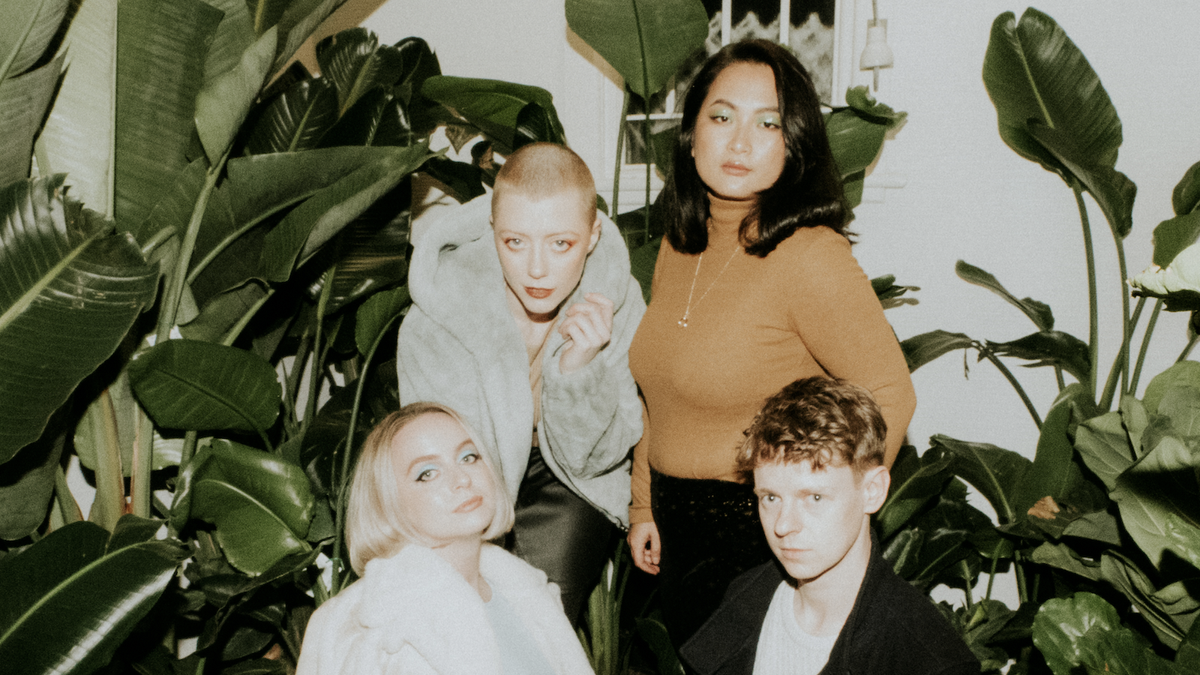
Grunge is back, baby! And while it may be the gloomy, suburban streets of Seattle that it first took off, there’s a decent argument to be made for Canberra as the genre’s new hotspot. Case in point: Moaning Lisa. It was 2016 when the quartet first burst onto the scene, and over the past five years, they’ve cultivated an ironclad identity of unremitting fierceness, rough and rugged in sound with all the emotional intensity to match.
According to frontwoman Charlie Versegi, the band’s debut album, Something Like This But Not This, is “a very no-bullshit, cutthroat record” – one that is “defiantly rooted in reality” wherein every track cuts “straight to the point, no f***ing around”. These kinds of quotes usually reek of PR fodder (this one does indeed come from the album’s press release), but Versegi couldn’t be more truthful here: from the first soaring riffs of ‘Cold Water’ to the waiting distortion that tails ‘Wild Days’, Moaning Lisa’s debut album is a vicious and visceral assault on the senses, in all the most beautiful ways.
At the core of the album – and the band itself – lies a soul-ravaging two-axe attack that makes each track immediately stand out, Versegi’s own gravelly fretwork butting heads with that of the inimitable Ellen Chan. We caught up with Chan to chat about how the pair developed their one-of-a-kind chemistry, how her epochal Fender Stratocaster makes that chemistry shine, and what the band (nowadays based in Naarm) have in common with the Pixies, the blues and ‘80s glam-rock.
As your debut, how did you want this record to serve as an introduction to what Moaning Lisa is, and means, and stands for in its current form?
Most of the lyrics and music are written by Charlie, and I think it’s just about being honest. No-filter honesty. I really admire Charlie’s lyrics – she’s a really good storyteller, and it’s very evocative. There’s so much emotional depth in it, too. But yeah, I think it’s just about being honest with ourselves, channeling into it all of our musical influences and what we take advertently and inadvertently from artists that we’ve been listening to. We all have very different musical influences and tastes.
I guess with my guitar playing, I just wanted to complement what was already structurally there – the lyrics that Charlie had written, or a melody that Hayley and Hayden had written together – and the various ways that we write music.
What were some of those influences?
Before I came into Moaning Lisa, I was very heavily influenced by my guitar teacher, who taught me how to play blues guitar and a lot of ‘80s glam-rock. That’s was playing when I was a teenager in my bedroom, when I had nobody else to play with, so I think I would have inadvertently picked up some of those stylistic techniques. It wasn’t until I joined Moaning Lisa, when Hayley and Charlie and Hayden introduced me to music like the Pixies, Adalita and Mitski, that I really started to branch out into those styles. So I’d say those artists are definitely some that we really admire.
One thing I’ve definitely picked up from the Pixies as well, in terms of guitar playing, is in this one song, “Where Is My Mind?”, there’s this semi-tonal thing that goes on, and I use a lot of that kind of interval in my guitar playing. It’s very grunge and punk, and that’s kind of worked its way into the music.
Get The Pick Newsletter
All the latest guitar news, interviews, lessons, reviews, deals and more, direct to your inbox!
What’s the creative dynamic like between yourself and Charlie as guitarists?
When she writes a song, generally she’d have some chords, and then she’d put some lyrics behind it, and those are the bare bones that we start building from. So then we all come together as a band to microscopically focus on certain sections and pick it all a part. Sometimes she would have a really strong idea for a guitar line or something like that, so I’d play that, and then we’d kind of just workshop around that.
I think most of the times [the best material] comes out when we’re working together. I think earlier on, I preferred to write my guitar part alone, because I’d always kind of been this, like, bedroom guitar player. I was always like, “It’s too much pressure to play with other people, or write music with other people.” But I’ve embraced that a lot more recently.
And y’know, putting your ego aside as well, that’s really important. Because sometimes you can fall into that trap of being like, “Oh, I’m a guitarist, I can come up with my own guitar lines.” But in a band, you’re always working towards the same goal, and you’re all trying to service the song. It really comes down to what best serves the song that you’re trying to write.
What guitars were you playing in the studio?
Okay, so I’ve been playing this one guitar since I was like 17, and it’s still my favourite one. It’s a Mexican Fender Stratocaster, a sunburst one, that I got from Billy Hyde in Sydney. My mum wanted to gift me a guitar, and I was tossing up between a Telecaster or Stratocaster, and I was like, “I’m just gonna flip my guitar pick and let that decide for me.” It told me to get a Telecaster, but I was like, “Nah, f*** it, I’m getting a Strat.” So I already knew the answer deep down. So yeah, so I used that on the record, and Charlie would’ve played an American Telecaster.
What is it about that Mexican Strat that you just can’t get enough of?
I think a part of it has to do with how historically, it’s just a very common guitar – it’s a go-to guitar for this style, really. It’s a bit of an “if it’s not broke, don’t fix it” kind of deal as well. I do have many other guitars, but the Strat just works best for Moaning Lisa. I have this ESP guitar, which is the best for heavy metal playing – it’s got strings that are super thick – but it’s like, “Well, that’s not gonna work with Moaning Lisa.” I think in terms of playing alternative rock, [the Stratocaster] is just the best-fit guitar that I own. I’d like to get a Jaguar at some point, too – we’ll get there!
Did you have a pretty solid arsenal of pedals to play with as well?
So the go-to is the [Pro Co] Rat pedal for distortion – for playing lead stuff, that’s my main pedal, and then I have a Maxon overdrive as well. In terms of reverb – which I’d say is also a part of the Holy Grail on my pedalboard – is TC Electronic Hall Of Fame reverb. It’s just absolutely beautiful. I don’t even know what to tell you about it, it’s just beautiful. The reverb really shines through in “Fussy” – in the verse I play this clean-ish reverb-y part, and it just makes it so much prettier, it just fills up the atmosphere and really brings out the lushness in the song.
And then I’ve also got a phaser pedal, which I don’t use often, because it leans pretty heavily to, like, ‘80s glam-rock, and that whole sort of vibe, so I try not to use it too much. But it does help in filling out gaps and just creating a soundscape.

Ellie Robinson is an Australian writer, editor and dog enthusiast with a keen ear for pop-rock and a keen tongue for actual Pop Rocks. Her bylines include music rag staples like NME, BLUNT, Mixdown and, of course, Australian Guitar (where she also serves as Editor-at-Large), but also less expected fare like TV Soap and Snowboarding Australia. Her go-to guitar is a Fender Player Tele, which, controversially, she only picked up after she'd joined the team at Australian Guitar. Before then, Ellie was a keyboardist – thankfully, the AG crew helped her see the light…
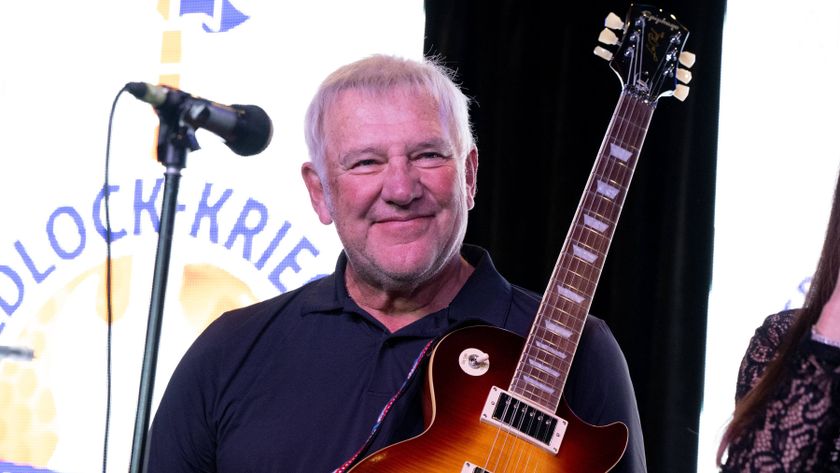
“It’s a whole new generation in sound. There’s nothing lacking”: Alex Lifeson reveals the gear that has finally converted him to digital modeling
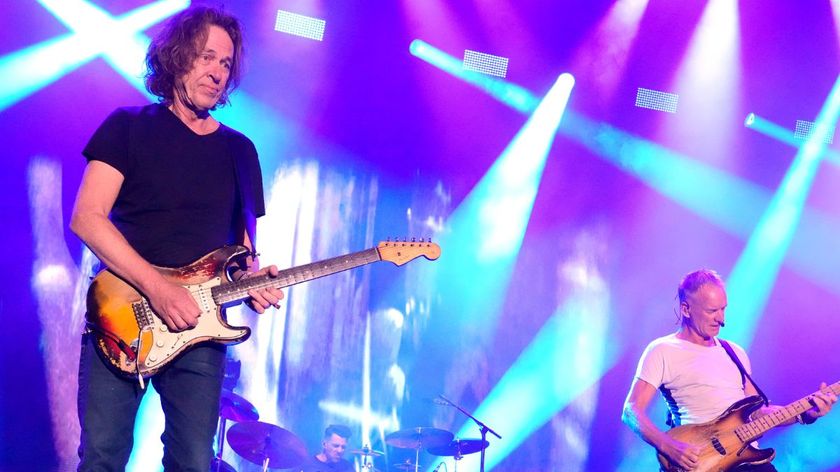
“The Strat is the most versatile electric guitar that there is; but the Les Paul is a perfect instrument”: Sting guitarist Dominic Miller weighs in on the Strat vs. Les Paul debate – says the Strat loses despite being a more versatile instrument








